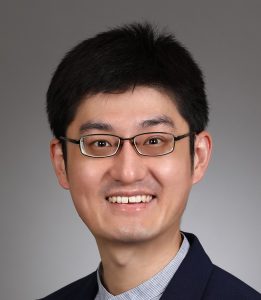 sai.zhang@ufl.edu
sai.zhang@ufl.eduZhang Laboratory
2004 MOWRY RD
GAINESVILLE FL 32611
Department Affiliation: Department of Epidemiology
Assistant Professor
Department of Epidemiology
Education:
2017 · Tsinghua University
2013 · Tsinghua University
2010 · Nanjing University of Science and Technology
Hi! I am a tenure-track Assistant Professor in the Department of Epidemiology at the University of Florida (UF) College of Public Health & Health Professions (PHHP) and College of Medicine. I am also an Affiliate Faculty in the J. Crayton Pruitt Family Department of Biomedical Engineering at the UF Herbert Wertheim College of Engineering. I was an Instructor in the Department of Genetics at Stanford University School of Medicine. I am also working with Dr. Philip Tsao as a Research Associate (w/o compensation) at the VA Palo Alto Epidemiology Research and Information Center (ERIC) for Genomics. I received postdoctoral training in Dr. Michael Snyder’s group at Stanford Genetics. Prior to that, I got a Ph.D. in Computer Science from Tsinghua University, advised by Dr. Jianyang Zeng.
Our research lies at the interface of machine learning, genomics, and precision medicine. Our long-term goal is to build machine learning systems to assist scientific discovery, clinical decision making, and personal health management. The focus of our ongoing research is the development of machine learning algorithms (e.g., deep learning and probabilistic graphical models) which exploit massive genetic, multiomic, and clinical data to uncover the genomic basis of complex human diseases. Specifically, our work follows a variant-gene-pathway principle where we start from deep learning modeling of biological sequences (e.g., DNA and RNA) to predict functional effects of variants in different cellular processes (i.e., in silico mutagenesis; NAR 2016, Cell Systems 2017, Bioinformatics 2017). We then move on to a global modeling of genotype-phenotype mapping where we identify candidate risk genes (Neuron 2022, Cell Systems 2022) and predict phenotypes from personal genomes (Cell 2018). By leveraging cutting-edge techniques (e.g., deep learning and single-cell genomics), we are particularly interested in modeling the complexity (e.g., nonlinearity and cell-type-specificity) of the underlying biological system (Cell 2019).
